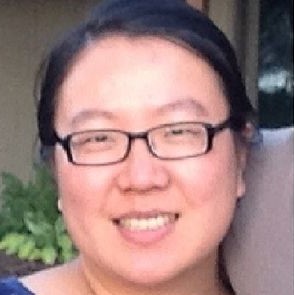After the publication of Surviving the State, Remaking the Church, among the feedback I received, two comments in particular surprised me. The first was the reaction of a fifteen-year-old American-born Chinese girl, a second-generation believer in our church’s youth group, who told me the book was both informative and formative to her. The second was from a returnee professional named Zhang in Shanghai who encouraged me to have the book translated into Chinese for readers in mainland China. These were not the people I had expected to benefit from the book.
In particular the second response intrigued me. As I spoke at length with my returnee friend, I asked her to convince me why a Chinese translation is needed. She did, and more amazingly, she even offered to be the translator.
This conversation with Zhang made me realize that many, if not all, returnees are likely to find Surviving the State, Remaking the Church helpful as they prepare for the tough encounters they will face, not just with the political realities in mainland China that marginalize Christianity, but with the internal sub-cultures of churches there.
Two factual trends stand out with regard to returnees’ ministry. The first is that many students and visiting scholars are exposed to the Christian faith overseas and are claiming the faith for themselves. The second is that many overseas-converted believers stop going to church after they return to China. The reasons are complicated but it has much to do with asymmetry of information—very few returnees are informed realistically about the situations and challenges they will face both in the broader context and in the culture of the church upon their return.
Zhang studied for a Master’s degree in the United States from 2008 to 2010. She described herself at that time as being a “Little Pink” (xiaofenhong), just like most of her classmates. The term refers to nationalistic young people in China who can be easily offended by allusions to socio-political problems in their motherland. “Most of them are in Europe or the States now, but they still love the Chinese Communist Party and China,” she said.
But Zhang’s nationalism was not without sincere inward reflection. A first-time-in-her-life experience attending an American church changed something inside of her, and she kept going. Two years later, she returned to China and took up a high-paying job in a foreign firm. A wave of reverse-cultural shock brought Zhang back to church—this time a house church in China. She longed for something spiritually fulfilling in life.
The first house church she visited tried too eagerly to truly convert her. As Zhang recalls, “a sister, a leader in the church, was very aggressive and pressured me to do the ‘I accept Jesus’ prayer. I felt repelled but I conformed.” Then the church declared Zhang’s immediate conversion as a victory. Zhang said, “But I never went back to that church again.”
After this extremely disappointing experience, it was not until a year later that Zhang’s Christian colleague, who never pushed her but patiently and calmly witnessed to her, encouraged her to commit her life to Christ. That colleague gave Zhang a Chinese version of C. S. Lewis’s book Mere Christianity, and reading it transformed Zhang: “Reading it was the first time I understood the meaning of the Christian faith. It made me wonder why, after I had spent so much time in church life, nobody ever explained the true gospel to me.” Now a devoted believer in a church in Shanghai, Zhang also writes for the Christian audience in her spare time.
When I asked Zhang to convince me why a Chinese version of this book is needed, her answer deeply moved me: “I had thought that it was just me struggling with the issues you wrote about in the book, as a younger generation in the urban church. Reading the book was like reading my own story, and the stories of brothers and sisters around me.” Zhang confirms that through reading the book she was comforted by seeing a bigger picture of the context in which her own faith journey is taking place. Even in a fragmented faith community in urban China, one can gain an almost mystical grasp of God’s grander plan working there.
Zhang also points out another appealing feature of the book; it provides historical context. Because Christianity has been censored in mainland China, even returnees who converted overseas are largely ignorant of the history of the Chinese church. They have minimal knowledge of the Three-self Patriotic Movement in the 1950s, and often think of that time as irrelevant. Having seem churches and liturgies in other countries, they may view house churches as substandard. But the book can give them a convincing historical orientation about the complexity of the church in China. It can help them see beyond what meets the eye. Without being “preachy,” the book can even teach them how to appreciate the indigenous churches that mushroomed in urban China with their particular characteristics.
I am grateful to see how the book has taken on a life of its own, and how a diversity of audiences finds it relevant to their life’s circumstances. To an author, there is nothing more satisfying than this.

Mary Li Ma
Mary Li Ma (MA Li) holds a PhD in sociology from Cornell University. Currently a research fellow at the Henry Institute of Christianity and Public Life at Calvin University, Dr. Ma and her husband LI Jin have coauthored articles, book chapters, and are the authors of Surviving the State, Remaking the Church: …View Full Bio
Are you enjoying a cup of good coffee or fragrant tea while reading the latest ChinaSource post? Consider donating the cost of that “cuppa” to support our content so we can continue to serve you with the latest on Christianity in China.